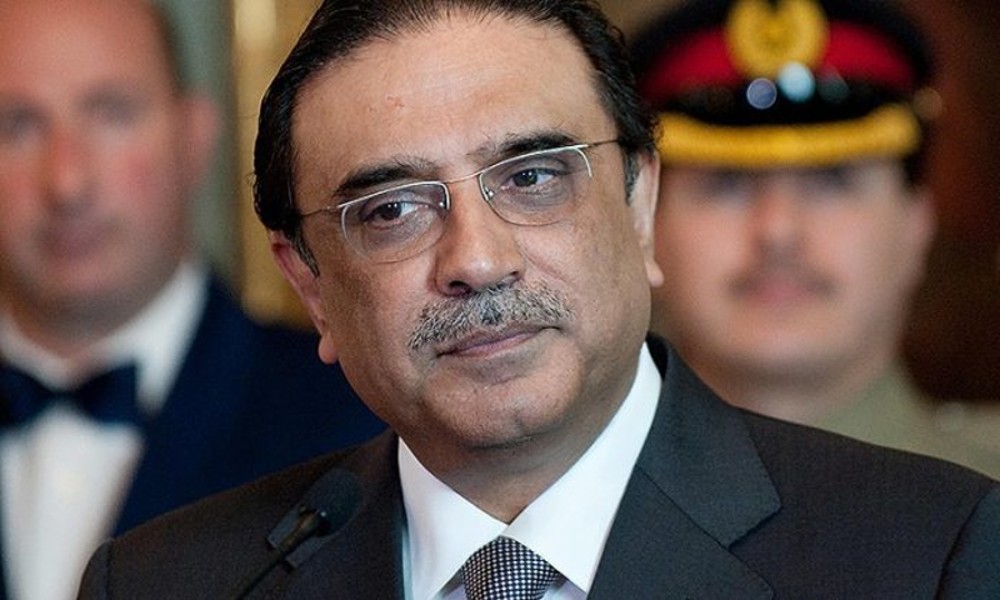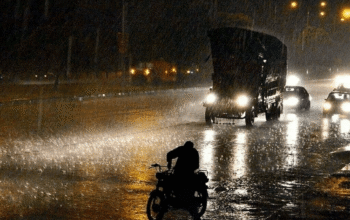By Staff Reporter
ISLAMABAD: Asif Ali Zardari, the leader of the Pakistan Peoples Party and a former president, won a second term as the country’s head of state on Saturday, defeating his rival Mahmood Khan Achakzai, a veteran politician and an ally of the jailed former prime minister Imran Khan.
Zardari secured 411 votes out of 592 cast by the members of the national and provincial assemblies, according to the Election Commission of Pakistan, which oversaw the indirect electoral process. Achakzai, who heads the Pakhtunkhwa Milli Awami Party, received 181 votes.
The election was held amid tight security protocols, as lawmakers arrived at their respective legislatures to cast their ballots. The polling started at 10 a.m. and continued until 4 p.m.
The official result will be announced on Sunday, after the commission receives the original records from the presiding officers, and the federal government will issue a formal notification of Zardari’s victory.
Zardari will take oath as the 14th president of Pakistan on Sunday.
Prime Minister Shehbaz Sharif, who leads the ruling coalition that nominated Zardari, congratulated him on his win and said it was a testament to the confidence of the four provinces in his leadership.
“President Asif Ali Zardari will be a symbol of the federation’s strength,” Sharif said in a statement. “His election reflects the continuity of democratic values in the country.”
He added that he was optimistic that Zardari would fulfill his constitutional responsibilities as president and that the allied parties would work together for the development and prosperity of the country.
Zardari, 66, served as president from 2008 to 2013, after his wife, the former prime minister Benazir Bhutto, was assassinated in 2007.
Zardari was voted into the largely ceremonial post by the PPP, which formed an alliance with the PMLN party after Pakistan’s February 8 elections that were marred with rigging claims.
Under the terms of the coalition pact, which also includes a number of smaller parties, Pakistan Muslim League Nawaz’s Shehbaz Sharif was sworn-in as prime minister last Monday.
Khan was jailed and prohibited from contesting in the election, with his Pakistan Tehreek-e-Insaf (PTI) party targeted by arrests and censorship, and its members forced to stand as independents.
The PTI won more seats than any other party last month, but fell far short of the majority needed to govern, which cleared the way for the alliance between PMLN and PPP.
Zardari is widely credited with ushering in constitutional reforms, including the 18th Amendment, which devolved more powers to the provinces and curtailed the president’s authority to dissolve the parliament and dismiss the prime minister.
Zardari also oversaw the first peaceful transition of power from one civilian government to another in Pakistan’s history, after his party lost the 2013 general election to Sharif’s PMLN.
Khan, a former cricket star, became prime minister in 2018, but his tenure was marred by political instability, civil-military tensions, and an economic crisis. He was ousted in a parliamentary no-confidence vote in April 2022, and Sharif formed a new coalition government with Zardari’s party and other smaller parties.
Khan, who is facing corruption charges, has been in prison since his removal from office. He has accused the military establishment and the US of conspiring against him and his party, and has called the current government illegitimate.
Zardari’s predecessor, Arif Alvi, a close associate of Khan, completed his five-year term as president in September last year, but remained in office until a new president was elected, as per the constitution. He was given a farewell guard of honor on Friday.
Alvi’s presidency coincided with a turbulent period in Pakistan’s economy, which was hit hard by the Covid-19 pandemic, soaring inflation, and a balance of payments crisis. The country narrowly avoided a default in June last year by securing a $3 billion bailout package from the International Monetary Fund, on top of a $6 billion loan agreement reached in 2019.
Copyright © 2021 Independent Pakistan | All rights reserved




